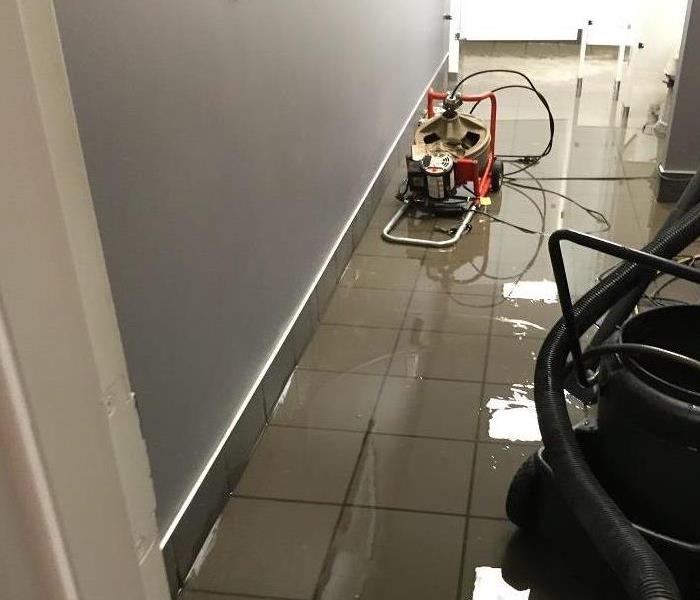Water Damage: What To Do Until Help Arrives
5/21/2019 (Permalink)
Experiencing a flood or water loss, whether at your home or place of business, can be very scary and stressful. Once the source has been stopped, you may not know what to do to move forward.
After any water loss situation, your first priority should be your safety. Is it safe to stay inside your house? If you do stay in the home, be sure to only do activities that are safe for you to perform.
Water Damage From Clean Water
Do:
- Shut off the source of water if possible or contact a qualified party to stop the water source.
- Turn off the circuit breakers for wet areas of the building, when access to the power distribution panel is safe from electrical shock.
- Remove as much excess water as possible by mopping and blotting.
- Wipe excess water from wood furniture after removing lamps and tabletop items.
- Remove and prop up wet upholstery cushions for even drying.
- Place aluminum foil or wood blocks between furniture legs and wet carpeting.
- Remove to a safe, dry place any paintings, art objects, computers, documents and other materials that are valuable or sensitive to moisture.
- Use wooden clothespins to keep furniture skirting off damp floors.
- Hang draperies with coated hangers to avoid contact with wet carpeting or floors.
- Hang furs and leather goods to dry separately at room temperature.
Don’t:
- Don’t enter rooms with standing water where electrical shock hazards may exist.
- Don’t enter affected areas if electrical outlets, switches, circuit breakers or electrical equipment are exposed to water. Always avoid electrical shock hazards.
- Don’t leave books, newspapers, magazines or other colored items on wet carpets or floors to cause staining.
- Don’t leave Oriental rugs or other colored rugs on wet wall-to-wall carpets to cause staining.
- Don’t use your household vacuum cleaner to remove water, possibly causing electrical shock or damage to the vacuum cleaner.
- Don’t use TVs or other appliances while standing on wet carpets or floors, especially not on wet concrete floors.
- Don’t turn on ceiling fixtures is ceiling is wet or enter rooms where ceilings are sagging from retained water.
Water Damage From Contaminated Water
Do:
- Avoid all contact with sewage and items contaminated by sewage.
- Wash your hands thoroughly after contact with contaminated items.
Don’t:
- Don’t spread contaminated water by walking unnecessarily on damaged or wet areas.
- Don’t turn on HVAC system if there is a possibility of spreading contaminated air.
- Don’t use household fans to dry the structure and spread contaminants.
- Don’t use products for personal hygiene and cleanliness if exposed to the contaminated areas.





 24/7 Emergency Service
24/7 Emergency Service
